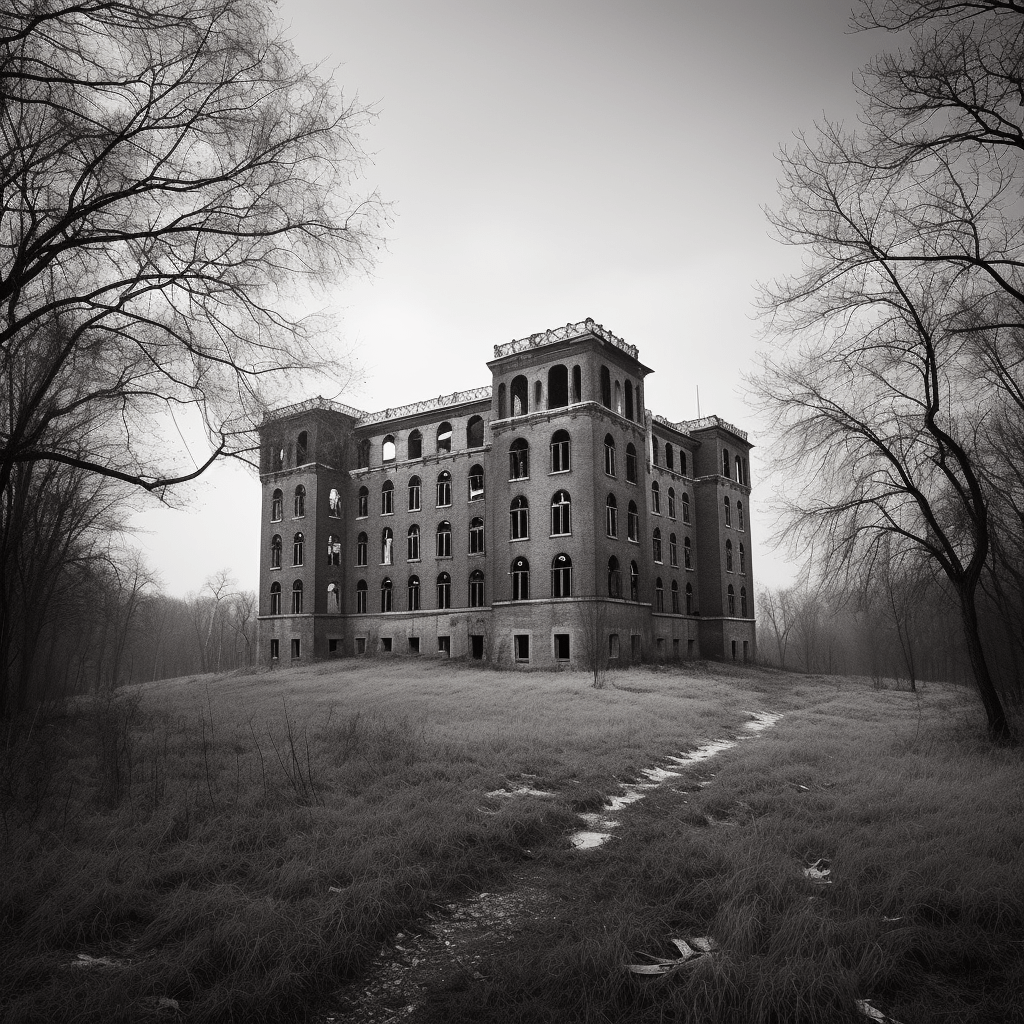Please leave your contact information and we will contact you as soon as possible.
How Does Breaking Code Silence Help Institutional Child Abuse Survivors?
Institutional child abuse is a tragic and heartbreaking reality for many young people that can leave them feeling silenced and traumatized. The Troubled Teen Industry (TTI) is a network of private programs designed to help teenagers and adolescents with their mental, emotional, and behavioral issues. These programs often operate in isolated settings, outside of the standard educational system, and with limited oversight. Unfortunately, some of these programs have been known to abuse and mistreat the children they are supposed to be helping.
With the recent emergence of the Breaking Code Silence movement, more and more people who were abused within TTI residential programs are speaking out and sharing their stories. TTI survivors have connected using the hashtag #breakingcodesilence. By speaking out, and even pursuing legal action against these programs, survivors are fighting to put an end to institutional child abuse within the Troubled Teen Industry.
If you or someone you love is a survivor of institutional child abuse, you should consider speaking to an attorney who can help you understand your legal options. The sexual abuse attorneys at Edwards Henderson have represented many sexual abuse survivors, including survivors of institutional abuse. Our team of experienced attorneys is dedicated to helping you break the code of silence surrounding institutional child abuse and seek justice and compensation for the damages suffered.
Key Takeaways
- The Troubled Teen Industry has been plagued by reports of all kinds of abuse at residential treatment programs, including sexual abuse.
- Survivors of troubled teen industry sexual abuse have the right to pursue justice by filing a sexual abuse lawsuit against the perpetrator and/or negligent TTI program.
- Sexual abuse lawyers can help survivors hold these programs accountable by helping them file a civil lawsuit.
What is Institutional Child Abuse?
Institutional child abuse refers to the known or suspected situations of neglect and abuse of children in out-of-home placements, such as residential child care facilities, care centers for individuals with disabilities, state-owned residential facilities, and the troubled teen industry. Unfortunately, many children suffer from physical, emotional, and sexual abuse in residential care and community-based settings, and need help to recover from the trauma caused by child abuse.

The troubled teen industry, for example, has thrived and preyed upon the desperate cries for help of families with struggling teens who put their children in institutional care. Instead of delivering proper treatment, many TTI programs provide a mix of maltreatment in the form of physical, verbal, and sexual abuse; isolation; attack ‘therapy’; aversion ‘therapy’; forced hard labor; sleep and food deprivations; as well as several other types of child abuse.
What is Breaking Code Silence?
In 2014, in response to child abuse in the TTI, the Breaking Code Silence movement formed to encourage TTI survivors to share their stories. This movement was started by the survivors of the World Wide Association of Specialty Programs (WWASP), an organization that ran several residential programs for troubled teens in the 1990s and 2000s.
WWASP and other TTI survivors have come together through the hashag #breakingcodesilence to share their stories and shed light on the dark practices that occur within these organizations. By breaking the ‘code of silence,’ these survivors are holding TTI programs accountable for their actions and creating a platform for other survivors to seek justice and move on from their trauma.
Residential Programs for Troubled Teens
Residential programs for troubled teens have become a growing trend in recent years. These programs are marketed as multi-disciplinary, personalized treatment programs for teens and adolescents struggling with mental health, behavioral, or other issues. They can range from residential treatment programs, boot camps, therapeutic boarding schools, wilderness camps, and other known or suspected abusive facilities.
When seeking residential programs for troubled teens, it is important to be aware of potential red flags. It is also essential to research the facility and ask questions about the program’s methods, philosophy, and results. Types of residential programs for troubled teens include:
- Residential Treatment Programs: These types of residential programs provide 24-hour supervision in a therapeutic setting. They offer counseling and support to help teens learn healthy behaviors, life skills, and problem-solving techniques.
- Boot Camps: Boot camp programs are typically short-term (1-3 months) programs that focus on discipline and physical fitness. This type of program will likely include intense physical training and harsh consequences for misbehavior.
- Therapeutic Boarding Schools: These residential facilities offer an academic education as well as therapeutic support for teenagers. They may focus on behavior modification, social skills development, and academic progress.
- Wilderness Camps: Wilderness camps provide an intense wilderness experience for teens and adolescents. These programs often involve physical activities such as hiking, canoeing, backpacking, rock climbing, and more.
- Group Homes: Group homes provide a supervised, therapeutic environment in which teens can work through their issues. They may be staffed by counselors who work with the residents on daily life activities such as shopping, cooking, cleaning, and more.
- Junior Reserve Officers’ Training Corps Programs: These are federal programs designed to help instill in students the values of citizenship and patriotism, service to the United States, self-reliance, personal responsibility, physical fitness, team-building skills, and basic military skills.

Troubled Teen Industry: Sexual Abuse
The Troubled Teen Industry (TTI) is an unregulated multi-million dollar industry that is promoted as providing behavioral therapy and educational programs for teenagers with problems. Unfortunately, the reality is that many of these programs are abusive and lead to more harm than good for the teens in their care.
Troubled teen facilities have a history of physical, sexual, and psychological abuse, with reports of inappropriate and excessive use of physical restraints, verbal abuse, food deprivation, and forced labor. One example of this abuse is from the Midwest Academy in Iowa, which opened in 1994 and accepted residents until it was shut down in 2016. The school was owned by Ben Trane and was home to roughly 130 children and teens who were sent there for “behavioral issues.” In reality, the academy was a place of serious abuse and neglect, including sexual abuse, where residents were being forced to engage in “body image therapy” that included modeling lingerie for Trane. He was later found guilty of sex abuse charges.
Another prominent example of Troubled Teen Industry abuse is the lawsuit against the World Wide Association of Specialty Programs (WWASP) in St. George, Utah. WWASP operated many residential programs across the United States, providing support services to troubled teens and their families. However, a lawsuit was filed alleging that over 350 former students had been subjected to physical and sexual abuse while enrolled in WWASP programs. The complaint further alleged that WWASP failed to address these complaints or report them to the authorities, and even sought to cover up the abuse.
These cases are just a few examples of TTI abuse, but unfortunately, they are not isolated incidents. As more survivors come forward, it is becoming increasingly clear that this issue must be addressed with greater urgency. It is only through recognizing and speaking out about TTI abuse that we can begin to bring justice to TTI survivors and ensure that sexual abuse of teens in residential programs is no longer tolerated.
WWASP Programs: Treatment Modalities, Abuse, and Deaths
WWASP was once one of the largest and most successful providers of residential treatment programs in the United States. Many of these have been accused of mistreatment and abuse of teen attendees. WWASP has closed many of its locations in the wake of such accusations.
WWASP Treatment Methods
WWASP has been criticized for its alleged physical abuse, emotional abuse, and overmedication of children. There have been reports of the use of humiliation, intimidation, threats of physical punishment, and other tactics to keep its residents ‘in line.’ Numerous reports also point to forced labor and unsanitary living conditions. WWASPs are known for using severe punishments, such as solitary confinement and sleep deprivation, to keep teens under control.
WWASP Sexual Abuse
It is heartbreaking that many teens who were enrolled in WWASP programs were sexually abused and were silenced from reporting such abuse. Due to a lack of accountability combined with the profitability margin of these programs, many instances of sexual abuse remain unreported.
WWASP Deaths
In 2001, a student at a WWASP facility jumped to death after being placed in solitary confinement, a fairly common method of punishment. Many residential facilities have reported teen suicides as well as deaths due to reasons such as fire, downing, escape attempts, restraint, electrocution, heat strokes, and other causes due to negligence. While the specific facility, Tranquility Bay, was shut down, numerous WWASP facilities continue to impart hard modes of punishment, with very little government oversight, appropriate resources, and acceptable standard of care.
It is important for parents to understand the potential risks associated with enrolling their children in these programs. There are a number of organizations that are dedicated to helping former residents of WWASP programs report abuse they may have experienced while in their care. If you are a sexual abuse survivor, you may want to take the help of such programs to recover from the trauma.
How Is #BreakingCodeSilence Helping TTI Abuse Survivors?
In March 2021, Breaking Code Silence officially became a 501(c)(3) non-profit organization with the aim to prevent institutional child abuse by empowering TTI survivors. It utilizes education, outreach, research, and community organizing to protect the rights of youth and is committed to facilitate institutional reform that is multidimensional in its approach.
The organization honors the testimonies of all TTI survivors and supplies them with resources during all stages of recovery from the abuse. The organization is heavily engaged in conducting research based on data highlighting dangerous TTI practices. It also supports professionals such as lawyers and policymakers in investigating patterns of abuse, and has even partnered with organizations to craft laws to protect youth in congregate care. Breaking Code Silence is a firm supporter of evidence-based treatments and collaborates with healthcare professionals to create awareness and educate the public on abuse and neglect of children.
The hashtag #breakingcodesilence began as an idea on social media to encourage TTI survivors to testify about their abuse, and has now become a powerful tool for them to tell their stories and seek support in unity. It has quickly gained traction on social media platforms like TikTok, Instagram, and Twitter, and has now become a unifying symbol of resistance for institutional child abuse survivors. It has sparked an international conversation leading to increased awareness of TTI’s abusive practices.
It has also given survivors a platform to tell their stories and access vital resources that can help them heal. By using #breakingcodesilence, TTI survivors are reclaiming their voices, finding strength in the community, and taking steps toward securing justice and compensation for the harm they suffered.
How Has the ‘This is Paris’ Documentary Raised Awareness of Institutional Child Abuse?
Paris Hilton recently released her Netflix documentary, This is Paris, where she opened up about the traumatic experiences she endured while attending a residential program for troubled teens. The documentary highlights the lack of regulatory oversight and accountability in the troubled teen industry, and exposes the systemic issues that have allowed these institutions to continue operating despite countless reports of abuse, trauma, and neglect.
Paris Hilton has become a powerful advocate for survivors of institutional abuse since the release of her documentary. She has been an outspoken voice for TTI abuse survivors, pushing for more regulation and oversight of residential programs for troubled teens. Her mission is to protect children from the same kind of suffering she experienced during her time at Provo Canyon School. Hilton’s story has resonated with many survivors of institutional abuse, and it has raised awareness of the issue on a global scale.
What is the Stop Institutional Child Abuse Act?
The Stop Institutional Child Abuse Act (SICAA) is a proposed federal bill aimed at preventing and addressing the abuse of children in residential institutions. The Act proposes to improve regulations, standards, and enforcement mechanisms within residential institutions in order to protect children from abuse and neglect.
The SICAA also seeks to increase the accountability of these institutions, provide more transparency in their operations, and strengthen reporting requirements. Additionally, it proposes the creation of a National Institutional Abuse Database to collect information on all reported cases of abuse and hold responsible parties accountable.
The SICAA was drafted by a coalition of advocacy groups, survivors, and other stakeholders to ensure that all children are protected from institutional abuse. If passed, this Act could be an important step in protecting our nation’s most vulnerable children and youth from being abused in an institutional care setting.
Resources for Institutional Sexual Abuse Survivors
Many survivors of institutional sexual abuse may need help to cope with the trauma of the abuse, along with resources that can support their journey toward healing. Below are a few resources that may be helpful for institutional sexual abuse survivors:
- RAINN (Rape, Abuse & Incest National Network): RAINN is the largest anti-sexual violence organization in the United States, and offers support and information to survivors of sexual abuse. They provide a 24/7 hotline as well as online chat services.
- Alliance Against Seclusion and Restraint: The Alliance Against Seclusion and Restraint is an organization dedicated to eliminating the use of seclusion, restraint, and other forms of coercive and dangerous practices in residential treatment facilities, schools, and other institutions.
- Community Alliance For the Ethical Treatment of Youth: The Community Alliance for the Ethical Treatment of Youth (CAFETY) is a coalition of organizations and individuals committed to creating a safe and secure environment for troubled and at-risk youth.
- National Youth Rights Association: The National Youth Rights Association is an organization that works to protect the civil rights of young people, including those affected by institutional abuse. They provide resources and support to help survivors navigate the legal system and fight for their rights.
Institutional Child Abuse: FAQs
1.How does the Troubled Teen Industry abuse teens and adolescents?
The Troubled Teen Industry has been around for over four decades and profits from sending troubled teens to residential programs in the hope of ‘curing’ their problematic behavior. Unfortunately, these programs have a dark side as some of them are notorious for physical, mental, and sexual abuse, often resulting in long-term trauma and in some cases, life-threatening injuries.
These programs have been known to isolate teens from their families and restrict their communication with the outside world. In addition, their treatments often involve the use of brutal punishments like physical restraint, solitary confinement, verbal and physical assault, humiliation, and deprivation of basic needs.
2.What is Child Grooming?
Child grooming is a process of gradually manipulating or befriending a child in order to gain their trust and subsequently committing sexual abuse, minor exploitation, and sex trafficking. It can include sending gifts, talking about sexual topics, or trying to establish an emotional bond. Grooming can take place both online and in person.
3.What is ‘Code Silence’?
Code Silence is a term that refers to the silence of survivors of institutional abuse, such as those in residential programs like WWASP. Silence is often enforced through manipulation, threats, and intimidation tactics that keep many survivors from speaking out and pursuing justice for the wrongs they have endured.
4.I Am A TTI Survivor. How Do I Report My Sexual Abuse?
If you are a survivor of institutional child abuse and are looking to report your experience, you should consider reporting the abuse to local law enforcement and/or Child Protective Services for immediate assistance. You may also want to find a qualified attorney who specializes in representing institutional child abuse survivors. A child abuse attorney can provide relevant legal advice and resources for pursuing justice.
Pursuing justice against your abuser and the TTI program can be a long and intimidating process; therefore, it is important to have a trusted attorney who understands the challenges you face. The sexual abuse lawyers at Edwards Henderson can help you hold the potentially responsible parties accountable for their actions and seek necessary damages to compensate you for the pain and suffering associated with the abuse, as well as help offset the costs of medical care, psychiatric treatment, and similar losses. By working with a sexual abuse attorney to file a lawsuit and having a platform to share your story, it may help you obtain closure.
5.I Am A Parent. How Do I Protect My Child Against Institutional Sexual Abuse?
As parents, it is our priority to keep our children safe from any harm and danger. Many parents choose to send their teenagers to TTI programs as a last resort to fix their problematic behaviors. Unfortunately, some children may be abused in these facilities and end up being traumatized by the abuse. It is important for parents to be aware of the signs of institutional sexual abuse so that they can take steps to protect their children.
Some common red flags of institutional sexual abuse include:
- Unexplained physical injuries
- Avoidance or refusal to talk about certain places or people
- Unwillingness to discuss activities outside of the institution
- Sexualized behavior or language beyond what is developmentally appropriate
- Feeling helpless or trapped
- Signs of depression, anxiety, or other mental health concerns
- Increased isolation and withdrawal from family and friends
- Running away from the facility or home upon their return
- An abnormal fear of certain people or places
- Use of drugs and/or alcohol
If parents have reason to suspect their child was abused, it is important to take action immediately by seeking help from a trusted professional.
6.How Do I Report Sexual Abuse at My Residential Program?
If you or someone you know was sexually abused at a residential program, you should immediately report it to the authorities by calling the National Sexual Assault Hotline at 1-800-656-4673. This hotline provides anonymous, confidential, and non-judgmental support for sexual abuse survivors. You should also contact the police or a local child protection agency to report your abuse. Remember to provide as much detail as possible about the incident for the authorities to investigate the case and potentially hold your abuser and the residential program accountable for their actions. Review ways to report abuse at a residential program for your specific state.
7.How Can I Fight Back Against Institutional Sexual Abuse?
Fighting back against institutional sexual abuse requires strength and courage, as well as speaking up about the abuse. Survivors of institutional sexual abuse have the right to share their stories, seek justice, and protect their safety and that of others. Reporting incidents of institutional sexual abuse to the residential program directors or local law enforcement authorities can help hold perpetrators and negligent programs responsible for their actions, and also help prevent others from suffering a similar fate. Survivors can also use social media to raise awareness about institutional sexual abuse and encourage others to speak out and fight back against institutional sexual abuse.
8.Can I File a Civil Sexual Assault Lawsuit Against My Residential Treatment Program?
Yes, you may be able to file a civil sexual assault lawsuit against your residential treatment program if you were sexually abused while you were a resident. You can also file a lawsuit against the owner and program director of a negligent facility if they were aware of or participated in the abuse, ignored the abuse, covered up the abuse, or failed to take reasonable actions to prevent the abuse. While no lawsuit can change what has happened to you, it can help you seek monetary compensation for the harm you suffered.
Before taking any legal action, you should consider speaking with an experienced attorney to explore your legal options and learn more about filing a civil lawsuit.
Speak With an Experienced Troubled Teen Industry Abuse Lawyer
Survivors of abuse within the Troubled Teen Industry often experience various forms of physical, mental, and emotional harm. A sex abuse attorney can help survivors pursue justice against the perpetrators and organizations that were complicit in the abuse. At Edwards Henderson, we specialize in helping sexual abuse survivors seek justice by providing the highest level of legal representation, and are nationally recognized for our success in helping survivors hold their abusers accountable.
If you or someone you love has experienced institutional sexual abuse, contact Edwards Henderson today for a free legal consultation. We will fight for your right to justice and help you hold the responsible parties accountable for their abusive actions.
Article Sources
Unsilenced Project, Inc | The Troubled Teen Industry.
https://www.unsilenced.org/the-industry/Breaking Code Silence
https://www.breakingcodesilence.org/The New York Times| Lawmakers to Investigate Sexual Abuse in Junior R.O.T.C. Programs
https://www.nytimes.com/2022/08/15/us/sexual-abuse-jrotc-congress.htmlWWASP Survivors | Update: WWASP lawsuit to be heard in St. George Utah
http://wwaspsurvivors.com/update-wwasp-lawsuit-2012/Unsilenced | Program Deaths
https://www.unsilenced.org/facility-deaths/RAINN
https://www.rainn.org/The Alliance Against Seclusion and Restraint | About seclusion and restraint
https://endseclusion.org/2019/09/01/about-seclusion-and-restraint/National Youth Rights Association
https://www.youthrights.org/Unsilenced | Where To Report Abuse
https://www.unsilenced.org/reporting/



